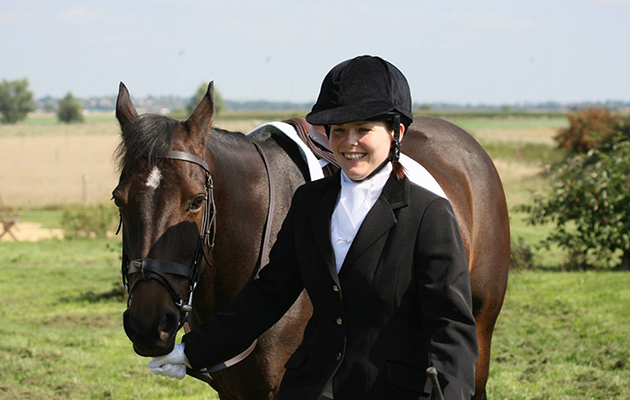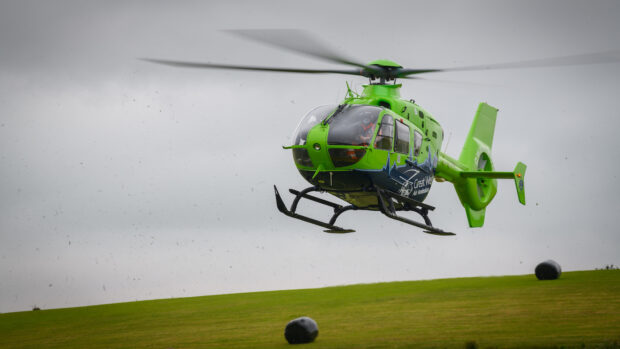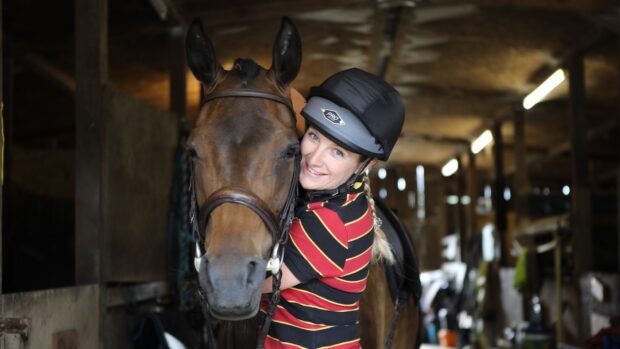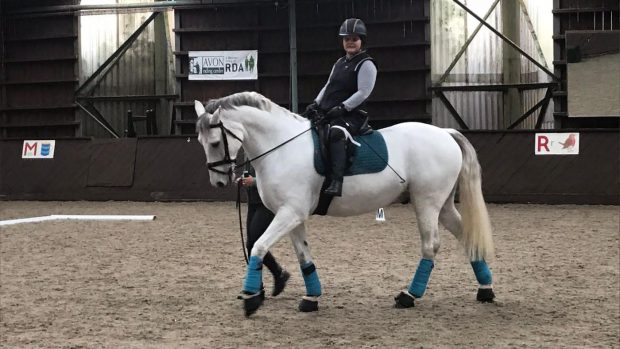A rider who broke her back while out hacking has praised the quick response from the emergency services.
Clare Andrews was out for a short ride with a friend on 7 August near Ely, Cambs, when the pair came across some combine harvesters that had been parked in a field.
Her friend’s horse spooked, falling into a ditch, and after checking her friend was not injured, the horse was caught, with some bystanders’ help.
“At this point I thought everything had calmed down,” she told H&H.
As they prepared to walk the 20 minutes back to the yard, Clare put her leg on to ask her horse, Galaxy, to walk forwards.
However, unsettled by the commotion, Galaxy reared and Clare fell off the back.
“I have loaned him six years and never known him rear,” added Clare.
She said she instantly knew something was wrong.
As her friend called 999, the bystanders came to help with the horses and to keep Clare calm.
A first responder was the first person to arrive and initially assessed Clare — who was conscious throughout — and gave her pain relief, closely followed by the East Anglian Air Ambulance (EAAA).
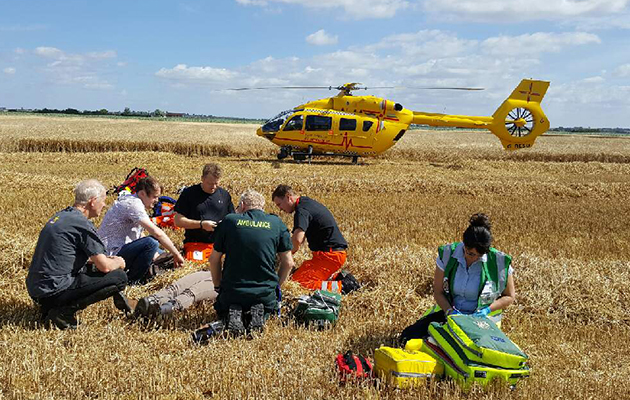
The doctor and paramedic from the air ambulance also assessed Clare and decided she could be taken to Addenbrooke’s Hospital in Cambridge by road.
An x-ray showed Clare had a compression fracture of her L1 vertebra and after five nights in hospital and an operation to stabilise it with metal screws, she was allowed home, where she is recovering.
Clare has now praised the quick response of the emergency services and is encouraging riders to support their local air ambulance.
“I was really surprised at how quickly the first responder arrived and the helicopter was not far behind,” said Clare.
“To know that the helicopter is available, to me is invaluable.
“We are on the fens and the ground gets very heavy. Most of the riding we do is on tracks rather than the road.
“At another time of year, [the land ambulance] would not have been able to pick me up.”
Her post on social media thanking the EAAA has since gone viral.
EAAA consultant Dr Ed Gold told H&H: “When patients get in touch to say that they have recovered well, it’s undoubtedly one of the most rewarding parts of our job.
“It’s always especially wonderful to meet patients when they visit the base.
“Over the years I have seen how helpful it can be for patients to meet the crew that treated them.
“Often patients remember very little of what happened to them, and so meeting clinicians and actually seeing the helicopter can help them come to terms with what happened to them.”

